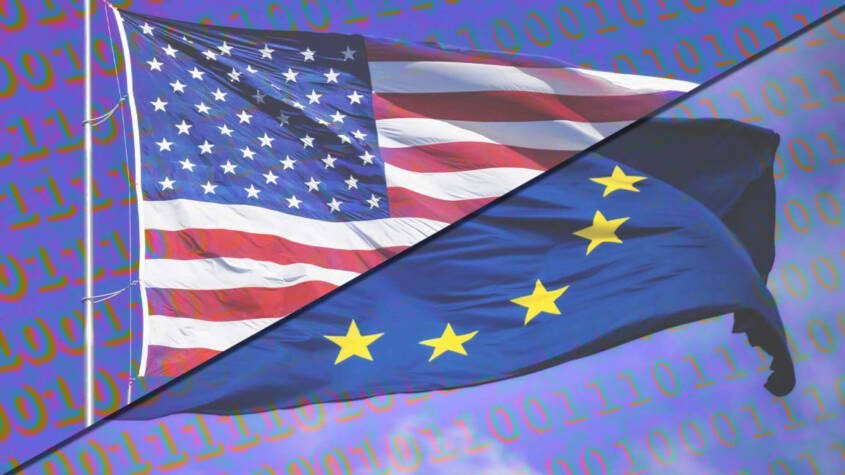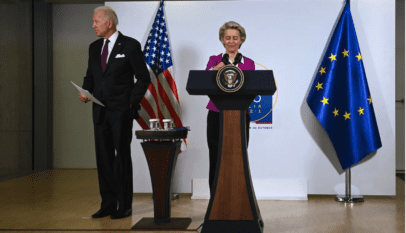For the third time in seven years, Washington and Brussels have shaken hands on a deal to keep customer data flowing—and to keep a certain American social network afloat—across the Atlantic.
The U.S. and the E.U. inked the deal, announced Friday by the White House and the European Commission, to solve a problem that’s been festering for U.S. firms—Facebook foremost—since Edward Snowden revealed the National Security Agency’s post-9/11 bulk collection of communications data.
Those disclosures of sweeping online surveillance programs led Austrian privacy activist Maximillian Schrems to file a complaint with regulators alleging that international “Safe Harbor” data-transfer policies left his Facebook data exposed to the NSA without adequate recourse. After multiple appeals, the Court of Justice of the European Union agreed, scuttling Safe Harbor in an October 2015 ruling.
That “Schrems II” sequel suit has now yielded the framework announced Friday. A White House outline breaks down the major provisions:..














